
Students from across the University presented their summer research projects on Oct. 25 on the Biddeford Campus.
Ellie Tracy wants to work for the Environmental Protection Agency someday. And this summer, the Marine Science major got a head start.
As a senior in the School of Marine and Environmental Programs, she investigated how pharmaceuticals entering coastal waters might affect marine life. She worked directly with professor and marine scientist, Gwangseok Rex Yoon, Ph.D., to design experiments and build relationships with leadership overseeing the local wastewater treatment.
“I’m learning skills I’ll use for the rest of my career,” said Tracy ’25, who will earn her bachelor’s in December before starting her master’s in Marine Science at UNE.
Tracy spent her summer researching whether diabetes medications like Ozempic and Wegovy could disrupt the metabolism of European rock shrimp in Maine’s warming coastal waters. She collected more than 200 shrimp from the Biddeford Pool area and toured the local wastewater facility to understand how pharmaceuticals enter coastal ecosystems. She’s now developing protocols to test whether these drugs affect glucose metabolism, especially during heat waves when tide pool temperatures can swing 15 degrees Celsius in a single day.
“I’m building relationships in the community and working across colleges,” she said, adding that she will partner with UNE Pharmacy researchers on a portion of her preliminary work of her master’s degree. And afterwards, she will be measuring drug uptake in shrimp and analyzing effects on feeding behavior. “All of these are skills I'll take with me into my master’s program and eventually when I do government advising work.”
But her experience at UNE isn’t isolated.
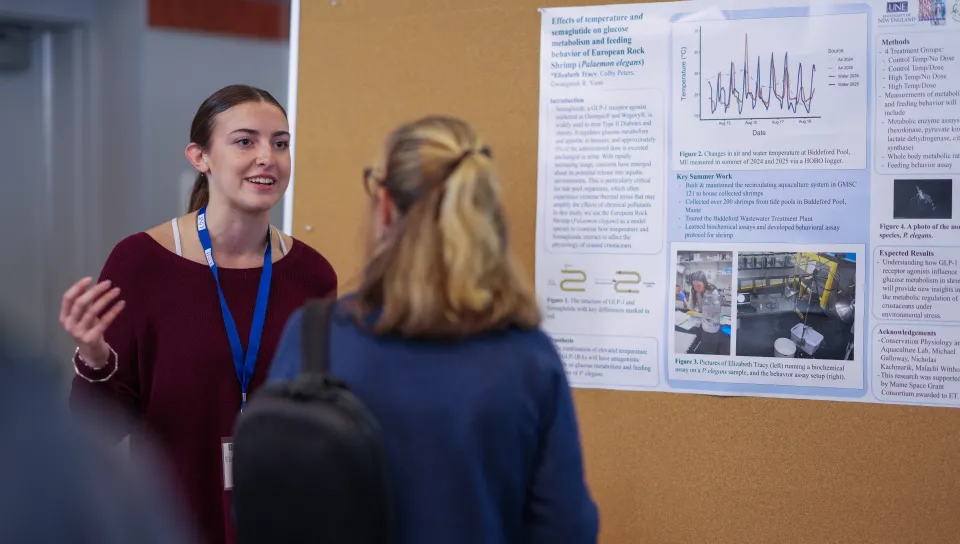
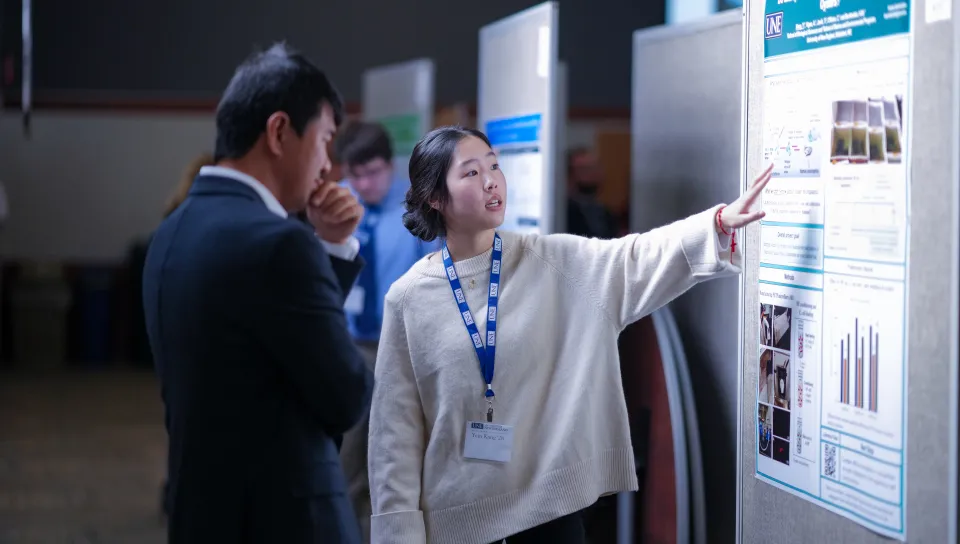
On Saturday, Oct. 25, over 30 undergraduate students at the University of New England presented at the annual Summer Undergraduate Research Experience (SURE) Symposium, in Decary Hall on the Biddeford Campus. The event, held during UNE’s Homecoming and Family Weekend, featured student work carried out this past summer and included topics ranging from microplastic contamination in farmed oysters to the migration patterns of bobolinks, to jellyfish detection using environmental DNA, and to the effectiveness of vision training for preventing sports injuries.
The SURE program encourages students to expand their coursework knowledge into advanced realms of understanding, preparing them for further study and careers in their fields, said Amy Keirstead, Ph.D., associate dean of the College of Arts and Sciences.
“These research experiences are transformative,” said Keirstead. “Students don’t just learn techniques specific to their discipline— they learn to troubleshoot, work across areas of expertise, and communicate complex ideas. And those are exactly the skills employers and graduate programs tell us they’re looking for.”
Across the room, Samantha Willey (Neuroscience, ’26) presented research on HIV-associated peripheral neuropathy, a common complication causing nerve pain in people living with HIV. Working directly with experienced lab members and Ling Cao, Ph.D., professor in UNE’s College of Osteopathic Medicine, the neuroscience major spent her summer mastering specialized staining techniques and examining cells, counting them to track where and when a specific protein becomes abundant within the spinal cord during HIV-related inflammation.
For Willey, direct access to faculty expertise accelerated her learning in ways that other institutions couldn’t match.
“If I have an idea or question, I can go directly to (Dr. Cao) and she can give me her thoughts,” she said. Willey added that while she bounces ideas and questions off other undergraduates and medical students in Cao’s lab, she has direct access to the principal investigator herself, something student researchers at larger universities rarely get.
Close collaboration between students and faculty mentors is a hallmark of undergraduate research at UNE, where 46% of undergraduates participate in research experiences, twice the national average.
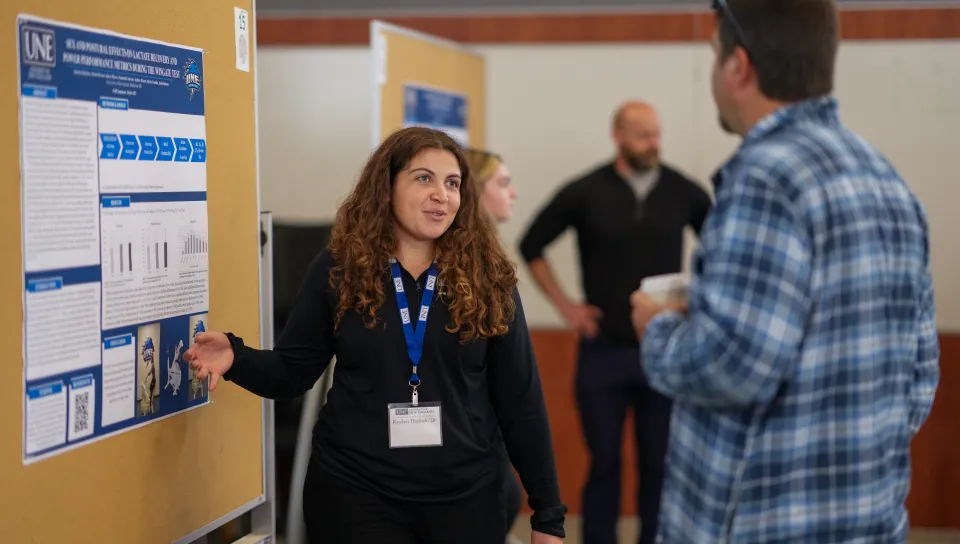
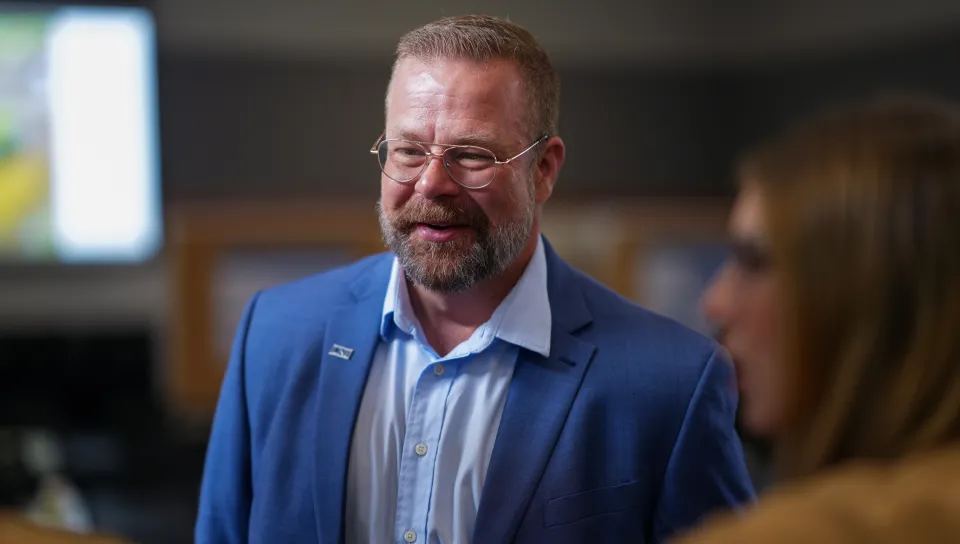
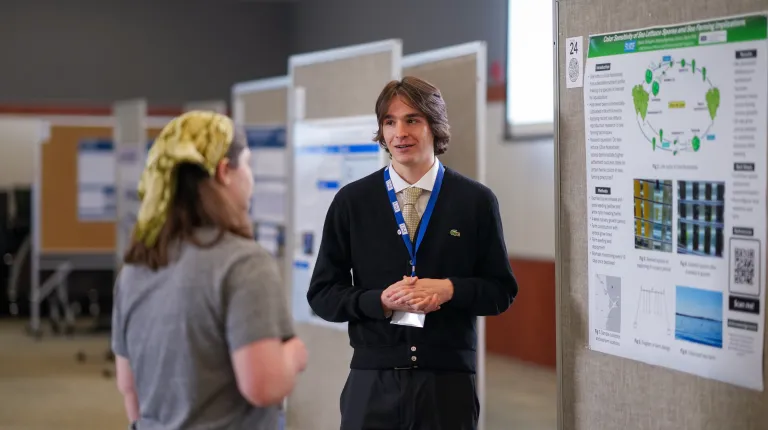
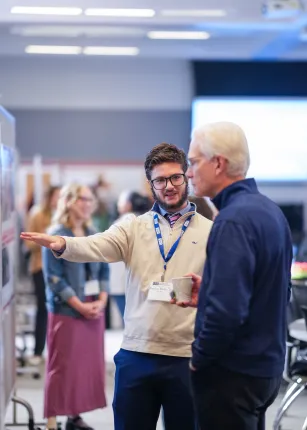
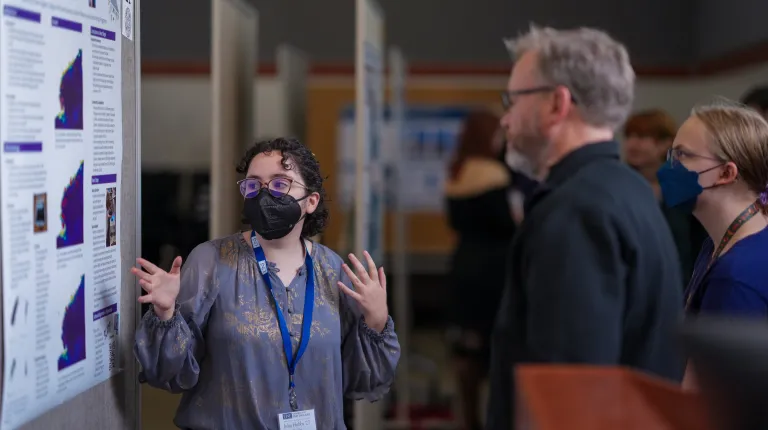
Kayden Haylock ’26, an Athletic Training major in UNE’s 3+2 accelerated program, studied how body position affects performance and recovery during high-intensity cycling tests. Research participants completed 30-second sprints on a stationary bike while seated, standing, or switching between the two. Haylock, under the guidance of John Rosene, D.P.E., a clinical professor in the Westbrook College of Health Professions, then tracked their blood lactate levels over 30 minutes to identify whether athletic trainers can modify standard testing protocols to accommodate individual preferences without compromising data quality.
Haylock said the experience provided crucial preparation for a career as a sport scientist working with professional teams or equipment manufacturers.
“I learned how to conduct a study, how to implement research, and then how to write a paper,” Haylock said, adding she had never completed a full research study before participating in the SURE program. “It’s that foundation... so that when I get to my Ph.D., I know what I’m doing.”